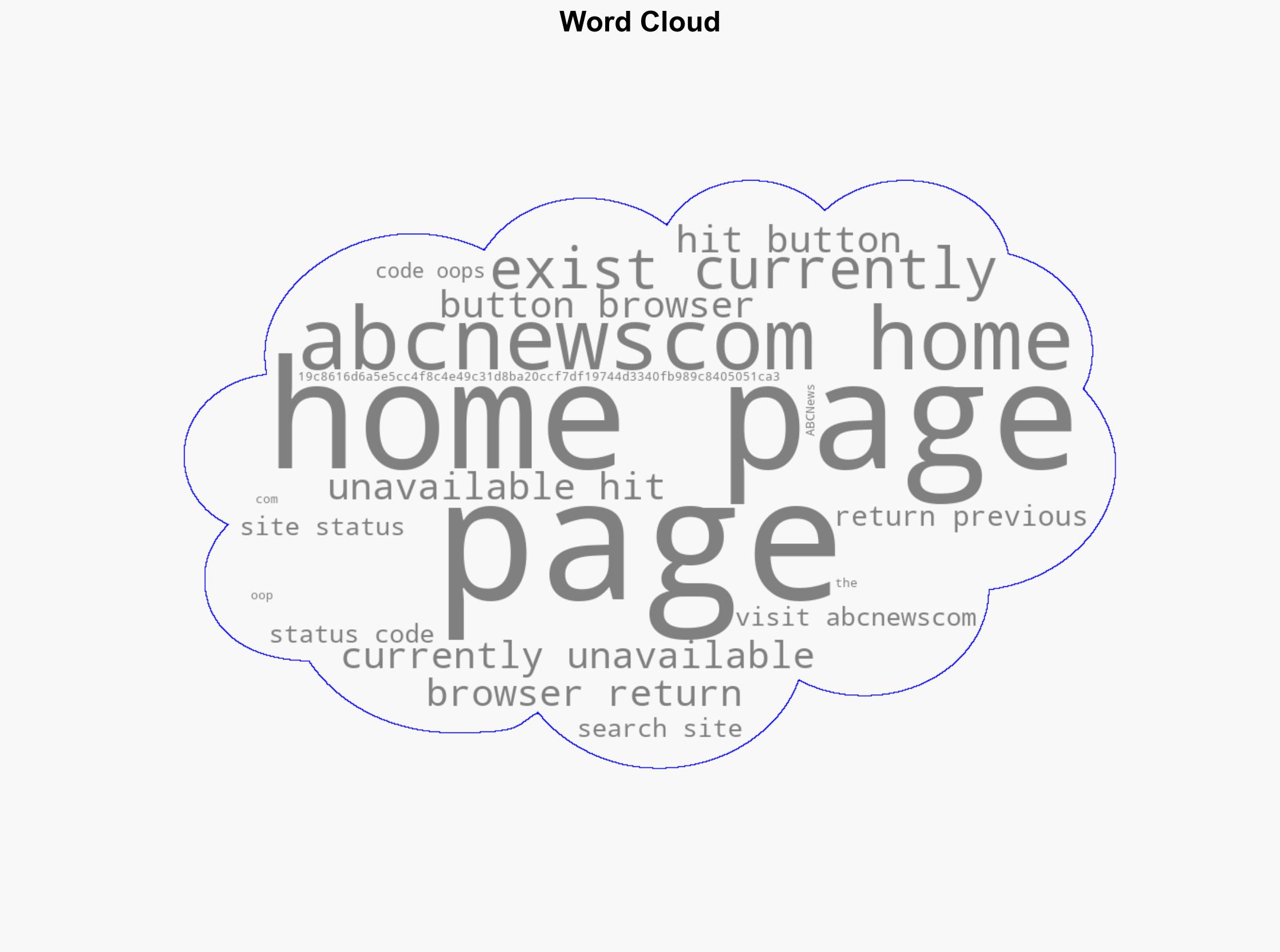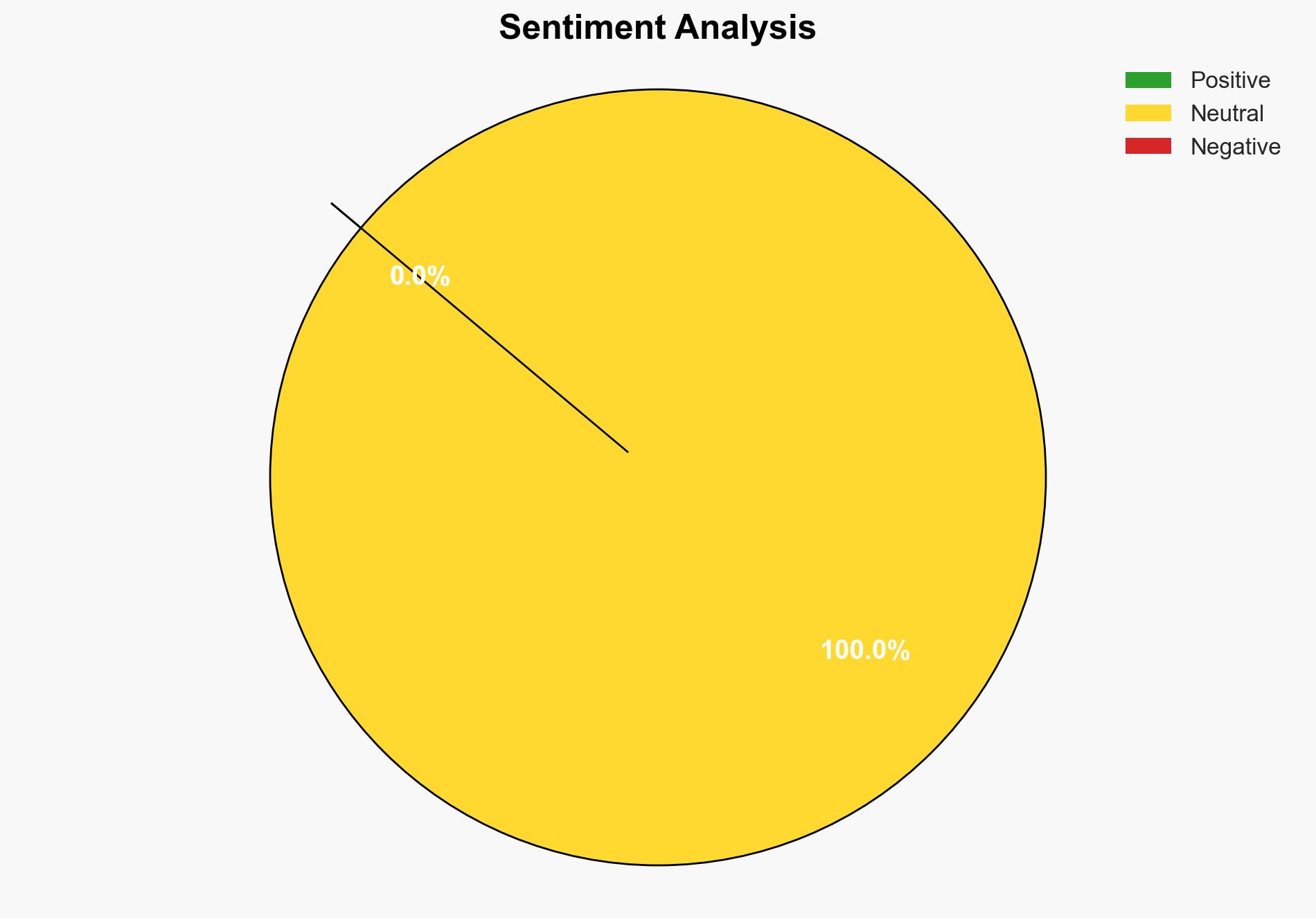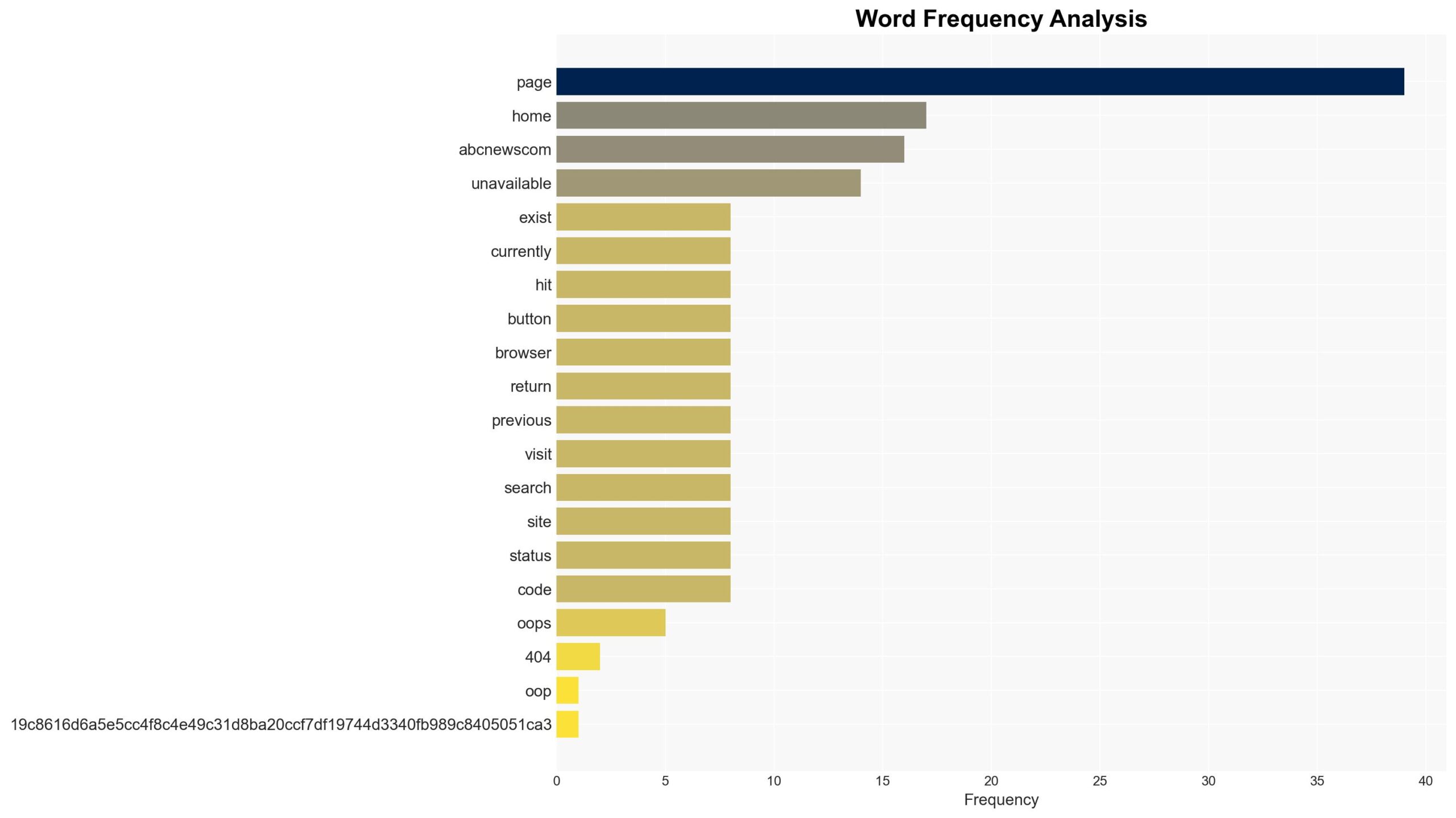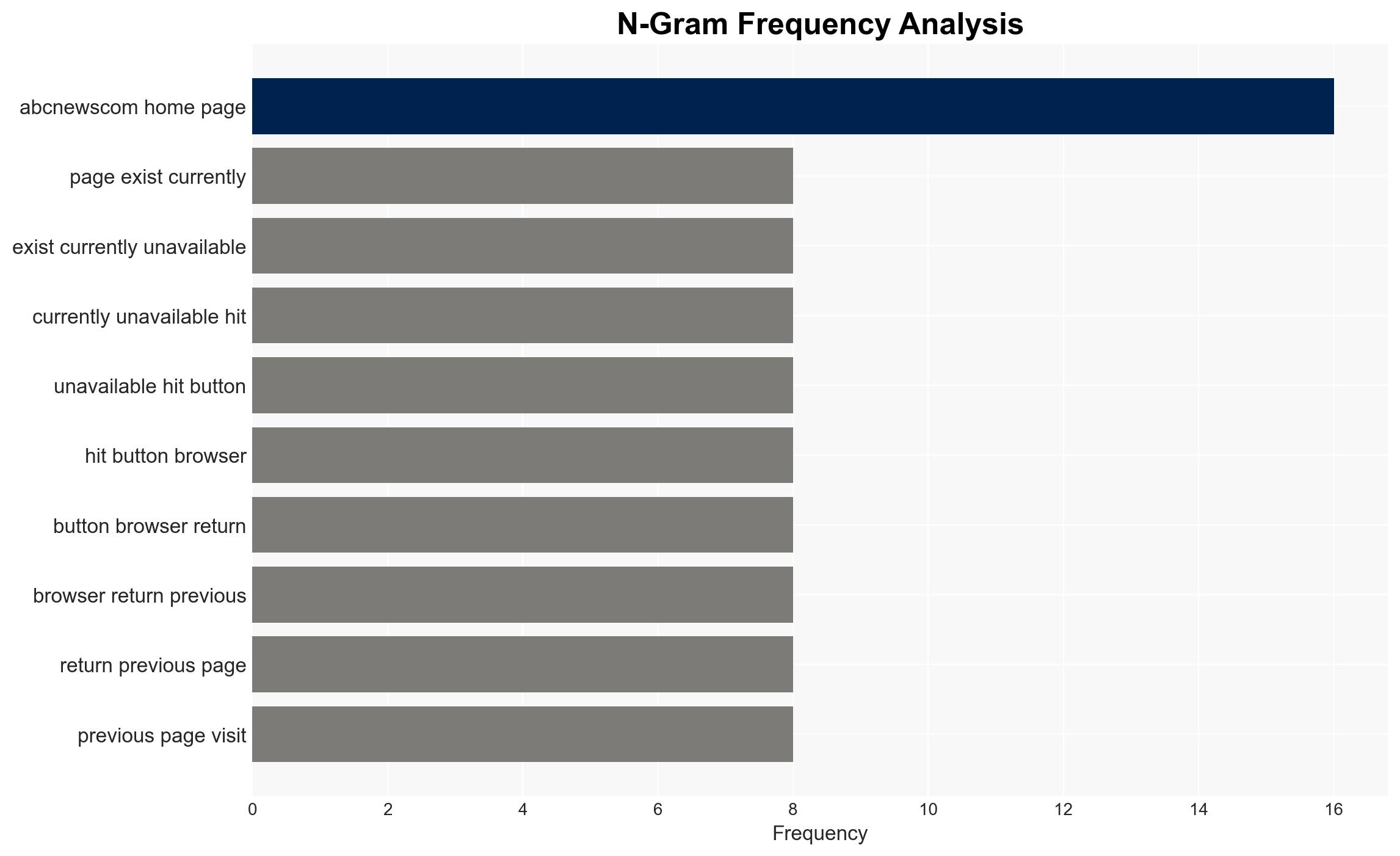UN nuclear agency’s board approves resolution urging Iran to provide information about its nuclear material – ABC News
Published on: 2025-11-20
AI-powered OSINT brief from verified open sources. Automated NLP signal extraction with human verification. See our Methodology and Why WorldWideWatchers.
Intelligence Report:
1. BLUF (Bottom Line Up Front)
The UN nuclear agency’s resolution urging Iran to provide information about its nuclear material represents a critical diplomatic effort to ensure transparency in Iran’s nuclear activities. The most supported hypothesis is that Iran is likely to continue its current strategy of limited cooperation while seeking to avoid further sanctions. Confidence Level: Moderate. Recommended action includes diplomatic engagement and intelligence sharing among allies to monitor compliance and prepare contingency plans.
2. Competing Hypotheses
Hypothesis 1: Iran will comply with the UN resolution and provide the requested information to de-escalate tensions and avoid further sanctions.
Hypothesis 2: Iran will continue its strategy of limited cooperation, providing minimal information to delay or obfuscate while advancing its nuclear capabilities.
Hypothesis 2 is more likely given Iran’s historical behavior of strategic ambiguity and reluctance to fully comply with international nuclear oversight.
3. Key Assumptions and Red Flags
Assumptions: Iran values economic relief and international legitimacy over nuclear advancement. The international community remains unified in pressuring Iran.
Red Flags: Increased rhetoric from Iranian officials against the resolution, sudden changes in Iran’s nuclear policy, or evidence of accelerated nuclear activities.
Deception Indicators: Iran’s provision of incomplete or misleading information, or diplomatic maneuvers to divide international consensus.
4. Implications and Strategic Risks
The resolution’s approval could lead to increased diplomatic tensions, with potential for Iran to retaliate by advancing its nuclear program or reducing cooperation with the International Atomic Energy Agency (IAEA). This could escalate into broader regional instability, impacting global oil markets and increasing cyber threats from Iranian actors.
5. Recommendations and Outlook
- Actionable Steps: Enhance intelligence-sharing among allies, increase diplomatic efforts to maintain international consensus, and prepare contingency plans for potential escalation.
- Best Scenario: Iran complies fully, leading to de-escalation and potential renegotiation of nuclear agreements.
- Worst Scenario: Iran accelerates its nuclear program, leading to military confrontations and regional instability.
- Most-likely Scenario: Iran continues limited cooperation, maintaining strategic ambiguity while avoiding severe sanctions.
6. Key Individuals and Entities
Rafael Grossi (IAEA Director General), Iranian nuclear negotiators, UN Security Council members.
7. Thematic Tags
Regional Focus, Middle East, Nuclear Non-Proliferation, International Diplomacy, Sanctions
Structured Analytic Techniques Applied
- Causal Layered Analysis (CLA): Analyze events across surface happenings, systems, worldviews, and myths.
- Cross-Impact Simulation: Model ripple effects across neighboring states, conflicts, or economic dependencies.
- Scenario Generation: Explore divergent futures under varying assumptions to identify plausible paths.
Explore more:
Regional Focus Briefs ·
Daily Summary ·
Support us





